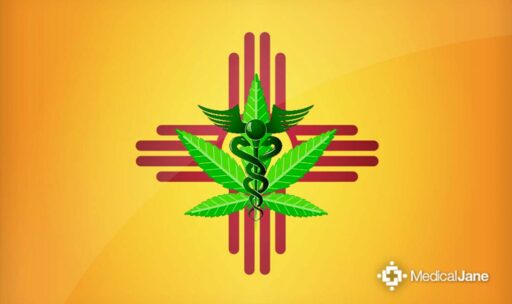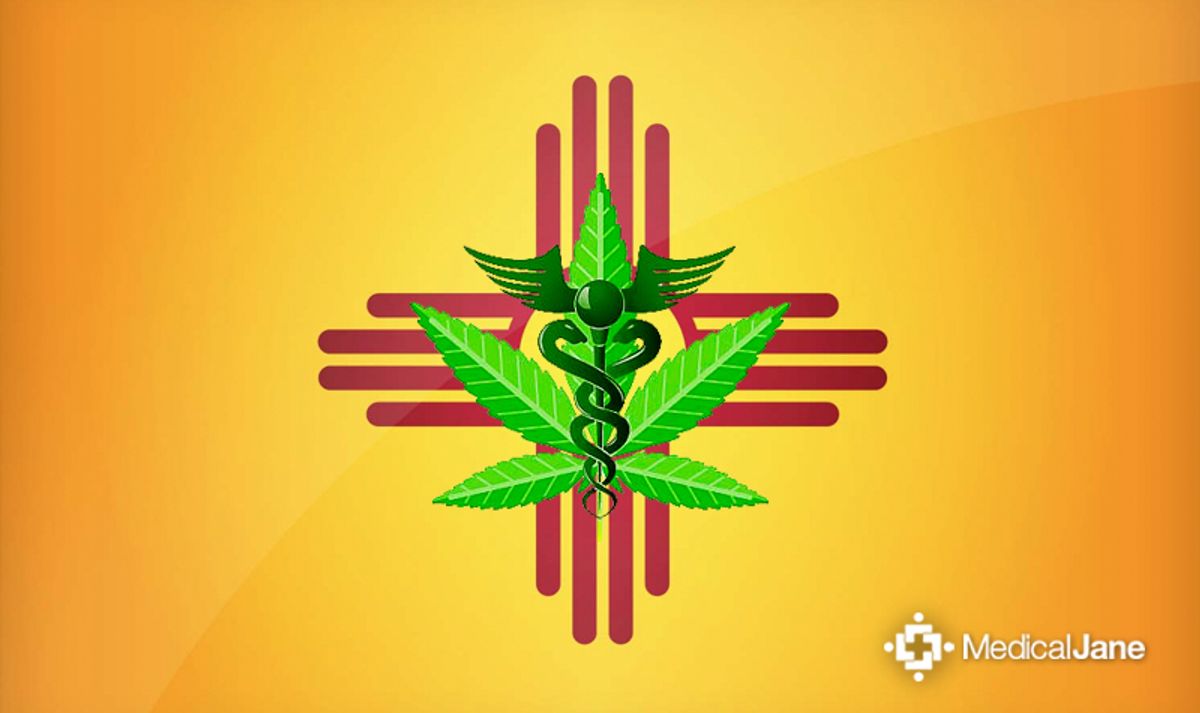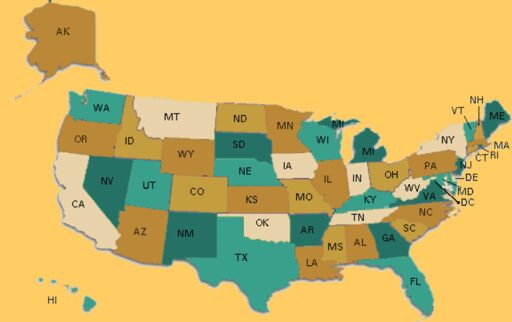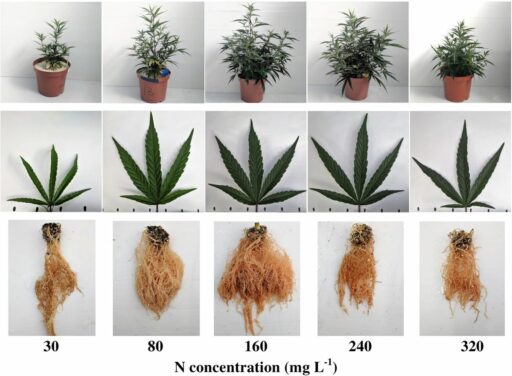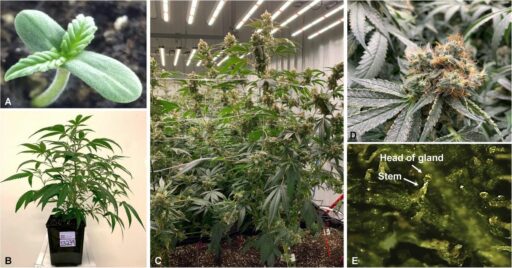Navigating the process of obtaining a medical marijuana card in New Jersey can be complex, but with the right guidance, it’s entirely achievable. This step-by-step guide is designed to walk you through the entire process, from understanding the state’s medical marijuana program to consulting with healthcare practitioners and completing your application. Whether you’re dealing with a qualifying medical condition or seeking to understand the legal implications of using medical marijuana, this guide will provide you with the essential information you need to acquire your medical marijuana card in New Jersey.
Key Takeaways
- Familiarize yourself with New Jersey’s eligibility criteria and required documentation to ensure you meet the state’s medical marijuana program requirements.
- Create an account with the New Jersey Medical Marijuana Program and gather all necessary information before starting your application process.
- Consult with a registered healthcare practitioner in New Jersey to obtain a certification for medical marijuana use.
- Complete the online application process, including submitting the required documentation and paying the application fee, within the specified timeframe.
- Understand the post-approval steps, including how to receive your medical marijuana card, find a dispensary, and adhere to the legal limitations in New Jersey.
Understanding New Jersey’s Medical Marijuana Program

Eligibility Criteria
To be eligible for a medical marijuana card in New Jersey, applicants must meet specific criteria. The state has outlined a list of qualifying medical conditions that determine eligibility. It is crucial for applicants to review this list and confirm that their medical condition is included before proceeding with the application process.
- Be a resident of New Jersey
- Have a qualifying medical condition as defined by the state
- Obtain a certification from a registered healthcare practitioner
It is important to note that the eligibility criteria are strictly enforced to ensure that only those with legitimate medical needs are granted access to medical marijuana.
Understanding the eligibility requirements is the first step in acquiring a medical marijuana card. Applicants should ensure they have all the necessary information and meet all the criteria to avoid delays in the application process.
Required Documentation
To successfully apply for a Medical Marijuana Card in New Jersey, applicants must gather a set of specific documents. Ensure all documents are current and valid to avoid delays in the application process. Here’s a list of the required documentation:
- A signed certification from a registered healthcare practitioner.
- The completed patient registry application form.
- A clear, recent photograph of yourself.
- A copy of your New Jersey driver’s license or state ID to prove residency.
- The applicable application fee, which varies based on eligibility and status.
Remember to double-check each document for accuracy and completeness before submission. Incomplete applications can result in processing delays or denials.
It’s crucial to follow the guidelines for each document closely. For example, the photograph must meet specific criteria, similar to a passport photo, and the healthcare practitioner certification must be obtained from a practitioner registered with the New Jersey Medical Marijuana Program.
Understanding the Medical Conditions List
New Jersey’s Medical Marijuana Program specifies a list of qualifying medical conditions that are eligible for treatment with medical cannabis. This list is crucial for patients to understand as it determines who can legally access marijuana for medicinal purposes.
The conditions range from chronic and debilitating diseases to certain forms of pain and mental health disorders. Here’s a brief overview of some of the conditions included:
- Amyotrophic Lateral Sclerosis (ALS)
- Alzheimer’s disease
- Cancer
- Chronic pain
- Glaucoma
- HIV/AIDS
- Migraines
- Multiple Sclerosis
- Muscular Dystrophy
- Post-Traumatic Stress Disorder (PTSD)
It’s important to note that this is not an exhaustive list, and the state may update it periodically. Patients should check the official New Jersey Medical Marijuana Program website for the most current information.
If your condition is on the list, you’ll need to obtain a certification from a registered healthcare practitioner, which is a critical step in the application process for a medical marijuana card.
Starting Your Application

Creating an Account with the New Jersey Medical Marijuana Program
To begin your journey towards obtaining a medical marijuana card in New Jersey, the first step is to create an account with the New Jersey Medical Marijuana Program. This process is straightforward and can be initiated by visiting the Cannabis Regulatory Commission Homepage. Here, you’ll find comprehensive information about the program, including answers to common questions and guidance on the application process.
Before you start, ensure you have the following items ready:
- A valid photo ID
- A credit or debit card for payment
Once you have these items, you can proceed to register for an account. The registration process is a critical part of your application, as it will be used to track your progress and store your information securely. Remember to review the Terms of Use & Privacy Policy to understand how your data will be handled.
After successfully creating your account, you’ll be one step closer to accessing medicinal cannabis for your health needs. It’s important to complete this step carefully to avoid any delays in your application.
Gathering Necessary Information
Before proceeding with your application, it’s essential to gather all the necessary information to ensure a smooth process. Ensure that you have your New Jersey state ID or driver’s license at hand, as this will be required to verify your identity and residency. Additionally, you’ll need to have a clear, recent photograph of yourself that meets the program’s specifications.
Here’s a checklist of the information you’ll need:
- Personal identification details
- Proof of New Jersey residency
- A recent photograph
- Your qualifying medical condition
- Physician’s contact information
Remember, having all your information ready before you start the application can save you time and help avoid delays.
Make sure to review the list of qualifying conditions and have your physician’s details ready, as you will need to provide these during the application process. If you are appointing a caregiver, they must also complete their application, and you will need their information as well.
Choosing a Payment Method
Once you have gathered all the necessary information for your application, the next step is to choose a payment method. The patient application fee is $50.00, and if you are applying as a caregiver, the fee is $125.00. It’s important to consider the payment method that is most convenient for you.
Payment can be made using a credit card, debit card, or through other electronic means as specified by the NJ-CRC. Ensure that your payment information is accurate to avoid delays in processing your application.
Below is a summary of the application fees:
- Patient application fee: $50.00
- Caregiver application fee: $125.00
Remember to review your application thoroughly before proceeding to payment. Once you are ready, you can move on to the final steps of submitting your application online.
Consulting with a Healthcare Practitioner

Finding a Registered Practitioner
To participate in New Jersey’s Medical Marijuana Program, you must consult with a registered practitioner who is authorized to recommend cannabis for medical use. This step is crucial as it involves a healthcare professional who will evaluate your condition and determine if medical marijuana is an appropriate treatment for you.
- Register online with a service that connects you with a licensed cannabis doctor. Services like ‘New Jersey Medical Marijuanas Doctor’ offer a streamlined process that takes only a few minutes to sign up and talk to a MMJ doctor.
- Ensure the practitioner is fully HIPAA compliant to maintain your privacy and security.
- Book an appointment and consult with the physician. During this consultation, they will address your health concerns and answer any questions about medical cannabis treatment.
Remember, the physician must be registered with the New Jersey Medical Marijuana Program to legally certify you for medical marijuana use. Without this certification, you cannot proceed with the application process.
What to Expect During the Consultation
When you book an appointment for a medical marijuana card consultation in New Jersey, you’re taking a significant step towards managing your health with the assistance of cannabis. Expect a thorough discussion about your medical history and current health concerns with a licensed cannabis doctor. The consultation is typically conducted online, ensuring your safety and convenience.
During the consultation, the physician will patiently listen to your concerns and answer any questions you may have regarding medical cannabis treatment. It’s important to be open and honest about your symptoms and experiences, as this will help the doctor determine if medical marijuana is a suitable treatment for you.
The evaluation process is designed to be simple, respectful, and informative, providing you with a clear understanding of how medical marijuana can fit into your treatment plan.
If the doctor determines that you qualify for a medical marijuana card, they will provide you with a certification. This certification is essential for completing your application with the New Jersey Medical Marijuana Program.
Obtaining the Healthcare Practitioner Certification
Once you have consulted with a registered healthcare practitioner, the next crucial step is obtaining the healthcare practitioner certification. This certification is a testament to your eligibility for medical marijuana based on your medical condition. After your consultation, the practitioner will provide you with the necessary certification if you meet the medical criteria.
Ensure that all the information on the certification is correct, including your name, qualifying condition, and the physician’s details. Any discrepancies can lead to delays in your application process.
To complete this part of the process, follow these steps:
- Review the certification for accuracy.
- Confirm that the certification includes the date and is signed by the healthcare practitioner.
- Keep a copy of the certification for your records.
Remember, the certification is only valid for a limited time, so you must complete your application within the specified period.
Completing the Application Process

Submitting Your Application Online
Once you have gathered all the necessary information and documentation, you’re ready to submit your application online. Ensure that every section of the application is completed in full to avoid any delays in processing. Here’s a brief rundown of the steps you’ll need to follow:
- Log in using the email address and password you established during the registration process.
- Navigate to the ‘Patient Application’ under the Applications tab.
- Upload a clear photo of yourself.
- Fill in all required fields, including your state ID information.
- Read and attest to the Patient’s Attestation Statement.
- Upload a copy of your identification as instructed.
After reviewing your application thoroughly, sign and date it electronically, then click ‘Save’ to transmit your application to the New Jersey Medical Marijuana Program.
Remember, the application fee is $50.00 for patients, and if you’re applying as a caregiver, the fee is $125.00. Payment can be made online during the application process. It’s important to note that these fees are non-refundable, so double-check your application for accuracy before submission.
Paying the Application Fee
Once you have completed all the necessary sections of the application, the next step is to pay the application fee. The application fee for patients is $50.00 and is non-refundable. If you are applying as a caregiver, the fee is $125.00, which also includes the cost for a mandatory background check.
Payment can be made online during the application process, and it’s important to note that this fee is separate from any other costs associated with obtaining your medical marijuana card, such as fees for consultations or certifications.
Here’s a quick overview of the fees you can expect:
- $50.00 Patient application fee
- $125.00 Caregiver application fee (includes background check cost)
Remember to review your application thoroughly before submitting it, as the fee is not refundable. After payment, you will be one step closer to obtaining legal access to medical cannabis in New Jersey.
What Happens After Submission
Once you’ve submitted your application for a New Jersey Medical Marijuana Card, the review process begins. Your application will be reviewed by the New Jersey Medical Marijuana Program (NJMMP) to ensure all information is accurate and complete.
- After submission, you can expect the following steps:
- The NJMMP will verify your information against the documentation provided.
- If additional information is required, you may be contacted via email or phone.
- Approval times can vary, but you will typically receive a response within 30 days.
It’s important to check your email regularly for any communication from the NJMMP. Prompt responses to any inquiries can help expedite the approval process.
Once approved, you will receive an email notification with instructions on how to pay the program fee. After payment, your medical marijuana card will be mailed to the address on file. Keep in mind that the actual card may take several weeks to arrive, so patience is key during this final stage.
After Approval: Obtaining and Using Your Medical Marijuana Card

Receiving Your Medical Marijuana Card
Once your application for a medical marijuana card in New Jersey is approved, the state will mail your card to the address you provided. Expect to receive your card within 45 days after approval. This card is your gateway to legally purchasing cannabis from licensed dispensaries across the state.
Upon receiving your card, it’s important to understand the next steps:
- Safeguard your card as you would any other important document.
- Familiarize yourself with the dispensaries in your area.
- Be aware of the purchase and possession limits set by New Jersey law.
Remember, your medical marijuana card is not just a pass to obtain cannabis; it represents your adherence to the state’s medical program and its regulations. Treat it with care and respect the guidelines to ensure continued access to your medication.
Finding a Dispensary
Once you have your medical marijuana card, locating a dispensary in New Jersey is your next step. The Cannabis Regulatory Commission provides a comprehensive directory of all legal dispensaries in the state, including those offering delivery options. This resource is invaluable for finding a dispensary that meets your needs, whether you’re looking for a variety of strains, edibles, or other cannabis products.
To ensure you choose a dispensary that aligns with your health requirements and preferences, consider the following:
- Proximity to your home or work
- Product selection and availability
- Pricing and discounts for medical patients
- Reputation and reviews from other patients
- Accessibility and convenience of location
When selecting a dispensary, it’s important to remember that each location may carry different products and offer unique services. Take the time to research and contact dispensaries to ask about their current stock and any patient support programs they may offer.
Understanding the Legal Limitations
Once you have your medical marijuana card in New Jersey, it’s imperative to understand and adhere to the state’s legal limitations to ensure compliance and avoid legal issues. Possession limits and consumption areas are strictly regulated, and patients are expected to follow these rules closely.
- Patients are allowed to possess up to a certain amount of medical marijuana, which is determined by the state.
- Consumption of medical marijuana is restricted to private spaces and is prohibited in public areas, including parks, schools, and while driving.
- Sharing or reselling medical marijuana is illegal and can result in severe penalties.
It is essential for patients to familiarize themselves with the full scope of legal limitations to fully benefit from the program without encountering legal difficulties. Remember, the laws are in place to protect patients, the public, and the integrity of the medical marijuana program.
Conclusion
Navigating the process of obtaining a medical marijuana card in New Jersey can seem daunting, but with the right guidance, it’s a straightforward journey. By following the step-by-step guide outlined in this article, you’ll be well on your way to legally accessing medical cannabis for your health needs. Remember to gather the necessary documents, consult with a licensed healthcare practitioner, and complete your application within the state’s guidelines. Once approved, you’ll be able to enjoy the benefits of having a medical marijuana card, such as the ability to purchase, possess, and use cannabis legally. If you have any further questions or need assistance, don’t hesitate to reach out for more information or consult additional resources. With your New Jersey medical marijuana card in hand, you can focus on what matters most: your health and well-being.
Frequently Asked Questions
What are the eligibility criteria for obtaining a medical marijuana card in New Jersey?
To be eligible for a medical marijuana card in New Jersey, you must be a resident of the state and have a qualifying medical condition as determined by a registered healthcare practitioner.
What documents do I need to apply for a medical marijuana card in New Jersey?
You will need a valid photo ID, proof of New Jersey residency, and a healthcare practitioner certification that confirms your qualifying medical condition.
How do I find a registered healthcare practitioner for a medical marijuana consultation in New Jersey?
You can find a registered healthcare practitioner through the New Jersey Medical Marijuana Program’s website or by contacting a local dispensary for recommendations.
How long does it take to receive a medical marijuana card after submitting the application in New Jersey?
The processing time can vary, but typically, you can expect to receive your medical marijuana card within 30 days after the application has been submitted and approved.
What are the legal limitations on using a medical marijuana card in New Jersey?
With a medical marijuana card, you are allowed to purchase and possess a certain amount of cannabis for personal medicinal use. However, public consumption and driving under the influence of marijuana are illegal.
How do I renew my medical marijuana card in New Jersey?
You can renew your medical marijuana card by submitting a renewal application along with the required documentation and fee before your current card expires.
